North Korea has instructed its factories to copy big brands’ sneaker designs
Sneakers from leading brands such as Nike and Adidas aren’t readily available in North Korea. But at the behest of the country’s government, local producers are reportedly taking influence from those foreign labels and filling the gap themselves, cranking out look-a-likes of Air Jordans and other styles.
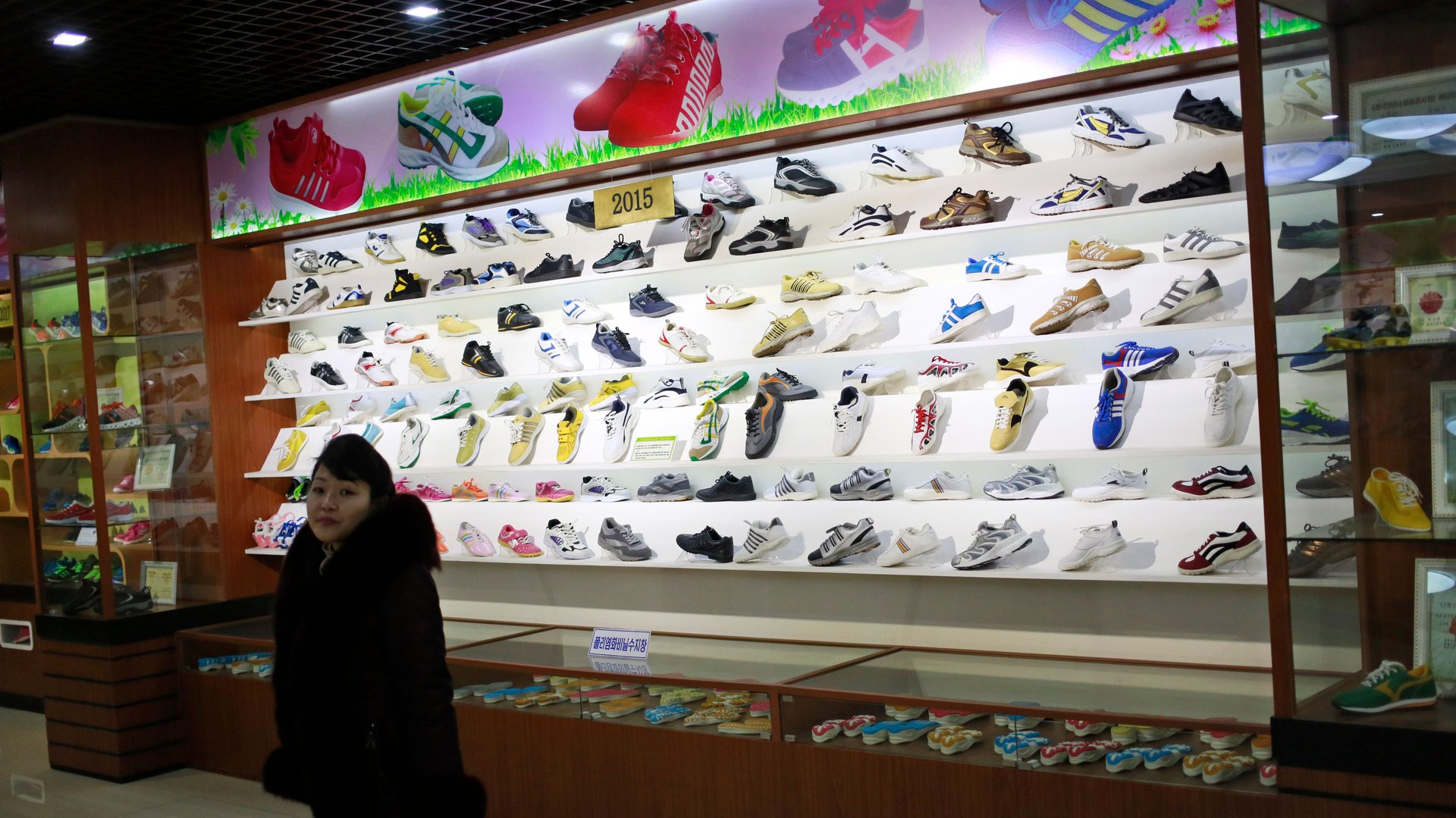

Sneakers from leading brands such as Nike and Adidas aren’t readily available in North Korea. But at the behest of the country’s government, local producers are reportedly taking influence from those foreign labels and filling the gap themselves, cranking out look-a-likes of Air Jordans and other styles.
“The respected leader Kim Jong Un has instructed us to closely study shoes from all over the world and learn from their example,” Kim Kyong Hui, of Pyongyang’s Ryuwon Shoe Factory, told the Associated Press.
The showroom of the footwear factory, photographed by the AP, is filled with examples of sneakers for sports such as basketball, running, and soccer that bear a clear resemblance to products from well-known international brands, including Nike, Asics, and more. In November, the Guardian visited the same factory, which the country promotes as a model of its shoemaking industry. On a stand next to the production line sat a pair of Adidas sneakers sent as a personal gift by Kim Jong Un “to inspire workers churning out imitations for the North Korean faithful,” it reported.
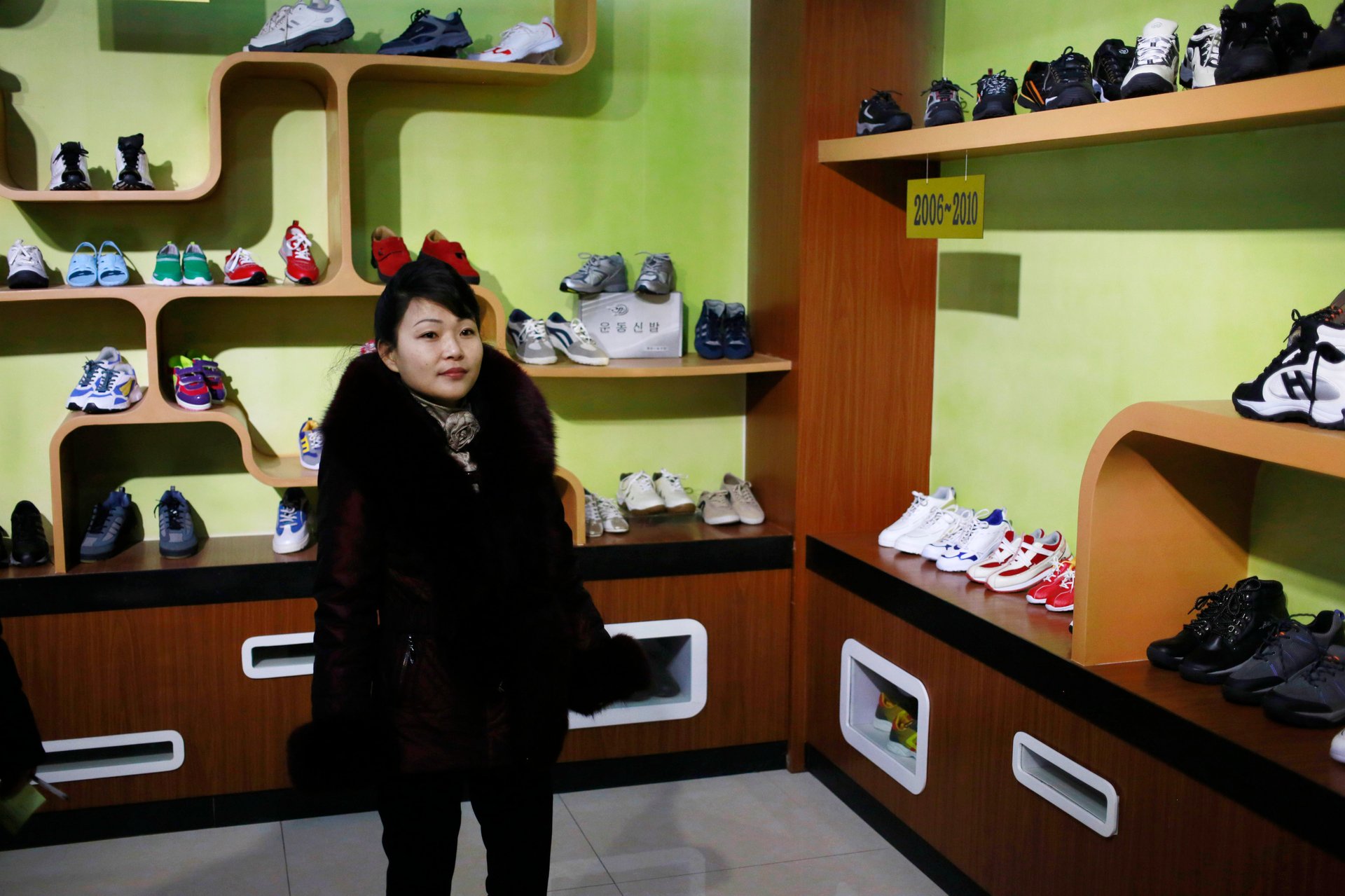
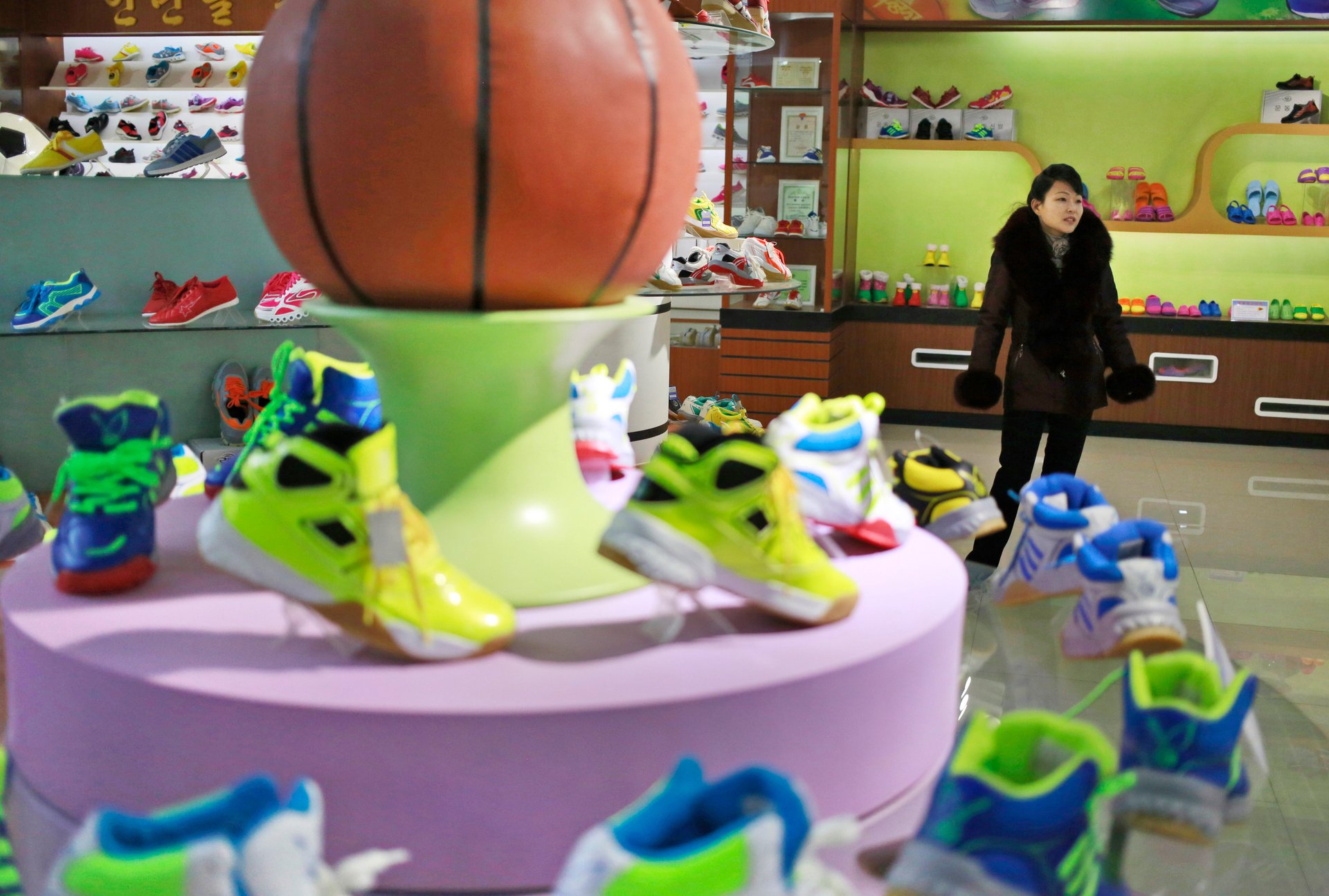
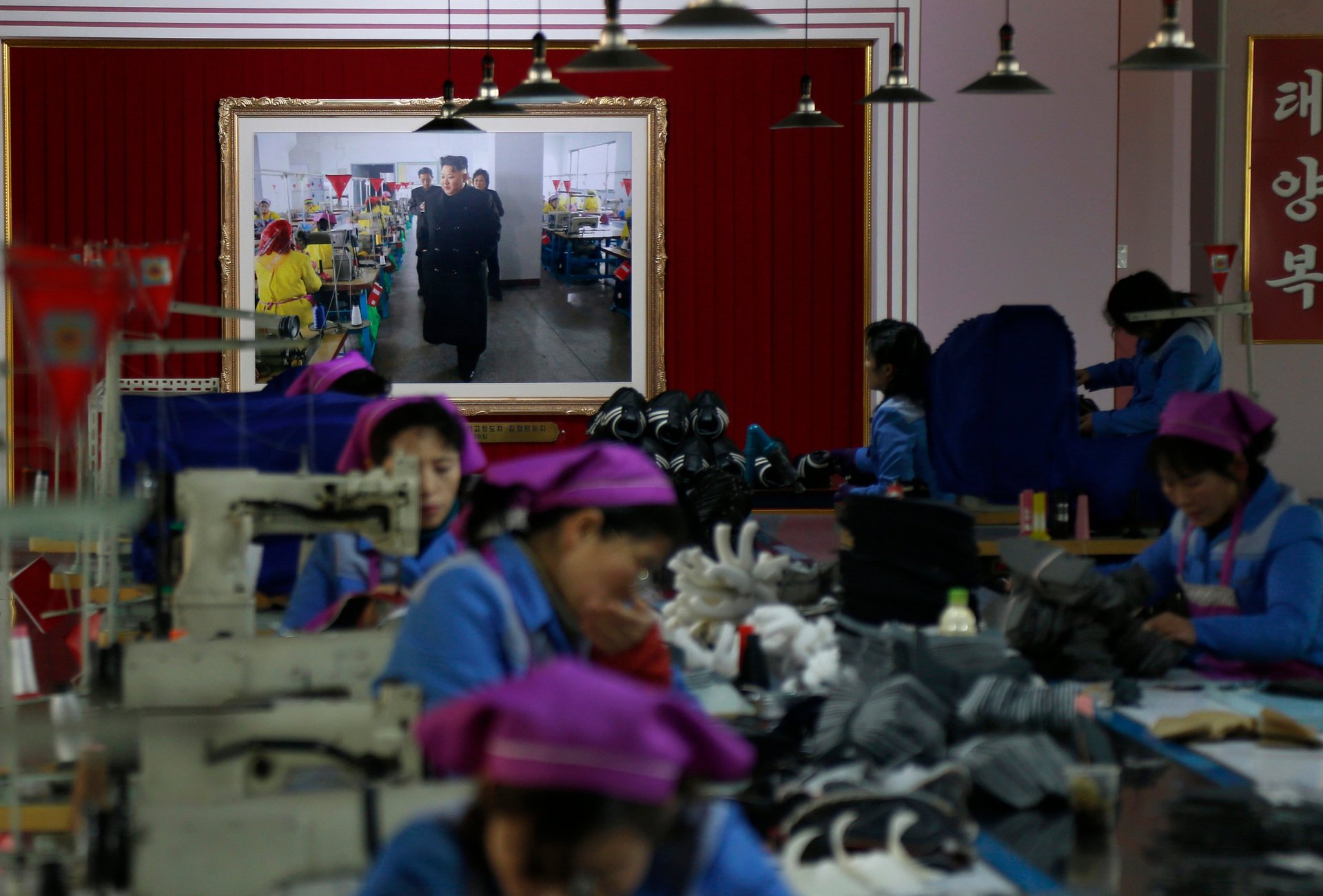
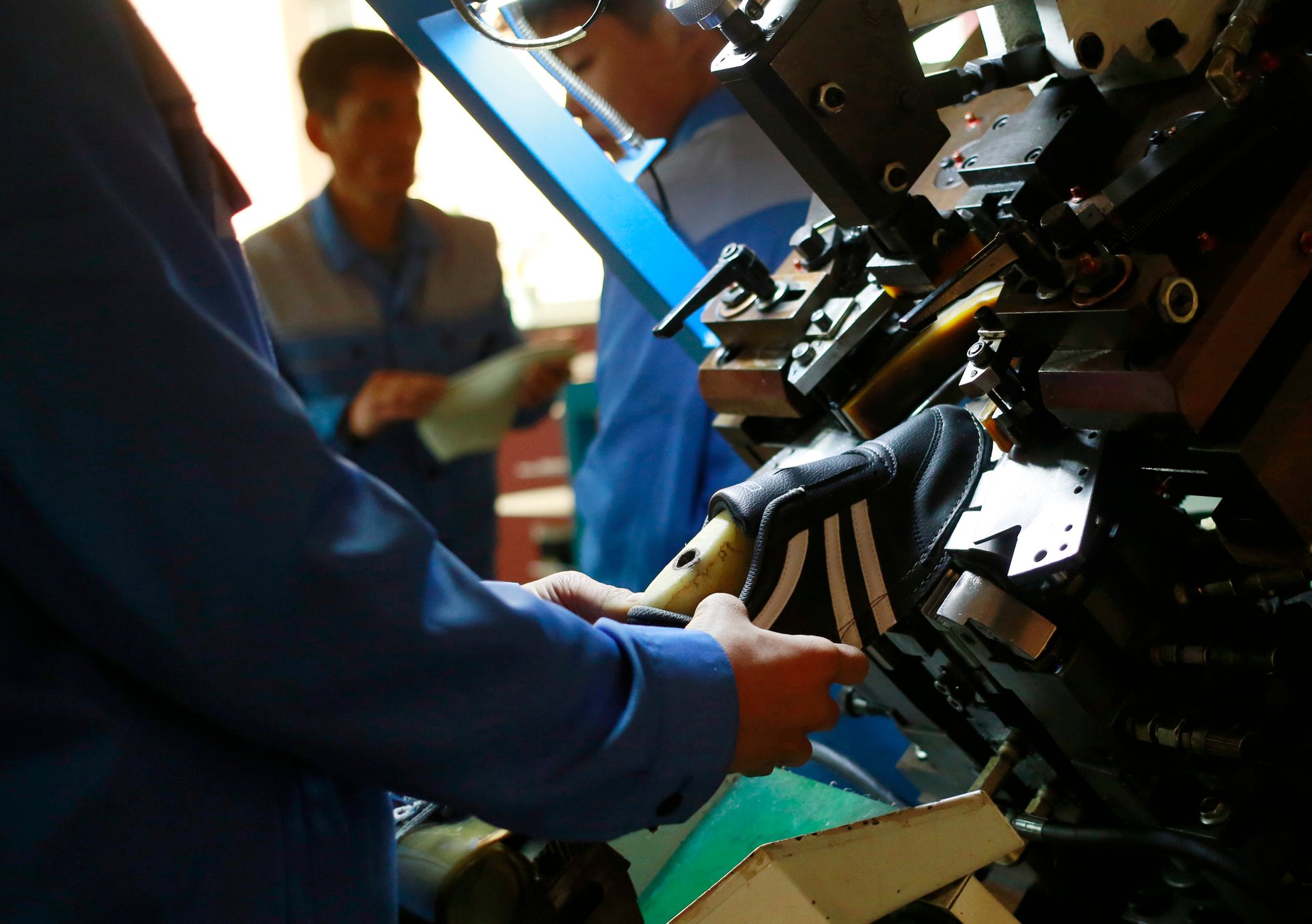
The reports offer a glimpse into the way pop culture and consumer goods, such as sneakers, in the extremely insular country are changing. While foreign products are restricted, the public is still often aware they exist, and has an appetite for them.
The ruling regime has offered hints that it’s open to satisfying at least some of that appetite with homegrown versions, indulging a little bit of consumerism—under the strict conditions it sets, of course. While it hasn’t recognized any official change in attitude, people who spoke to the AP and the Guardian believed that the regime is eager to modernize, and to keep the loyalty of the small circle of elites who can afford to spend on consumer goods.
In the case of sneakers, Hui told the AP it was important for the factory to make a product “that suits the people’s tastes.”
Geoffrey See, founder of Choson Exchange, a Singapore nonprofit promoting change in North Korea, told the news agency that, in the case of consumer goods, “it also ties into a state policy to encourage more domestic production and import substitution.”
Though as with many things in North Korea, there is the possibility that it’s all a big ruse for the sake of propaganda. “99.9% of the public are often not aware of external events or products. The elite military may know and upper connected class. But all the rest are trying to just survive,” Andy Polk, senior vice president of the Footwear Distributors and Retailers of America, tells Quartz. “In my opinion the product in the reported outlet is likely not produced there but placed in the store. Because the skill and industrialization does not actually exist for [those] shoes.” Polk studied North Korean issues related to China at the London School of Economics, and advised a member of the US House Intelligence Committee for years on affairs in the Korean peninsula. He believes it’s probably another example of North Korea putting on a show for the outside world.
North Korea has shown an interest in boosting its manufacturing, or at least looking like it, and also potentially using it to ramp up its economic growth. It’s even been studying the example set by Vietnam, a big manufacturer in Asia, especially for footwear.
This story has been updated with the comments from Andy Polk.